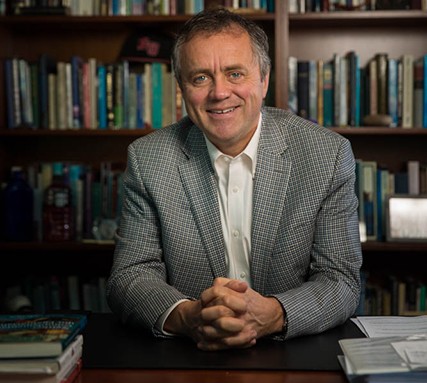Christian Smith is a sociologist at the University of Notre Dame. He studied at Wheaton and Gordon Colleges and has held academic posts at Gordon and the University of North Carolina before heading to South Bend. He has got an ever-keen mind and an often-pointed pen.
That pen inked a story last month in The Chronicle of Higher Educationirreverently titled, “Higher Education is Drowning in BS.” In his piece, Smith lamented colleges and universities for their weighted bureaucracy, their competitive clawing for higher ranks, their leftist political lopsidedness—he is right—and more than a handful of other complaints, a total of 22.
One of his concerns was how students become easily offended by trigger words, calling out “the ascendant ‘culture of offense’ that shuts down the open exchange of ideas and mutual accountability to reason and argument.” He says that too often, leaders of these universities capitulate to campus “language police.”
We certainly need to be sensitive about our language, but not in a hypersensitive way that injects fear into a university. Perpetual nervousness over, “Did I say that right?” closes conversations more than it opens them. In our robust and reasoned discussions, we need to be thinking more about conveying micro-affirmations than worrying about committing micro-aggressions.
A university campus should be the place where students have their ideas challenged, paradigms expanded and arguments sharpened because they regularly encounter opposing viewpoints and ideas that make them uncomfortable. A university should be a community where students become gritty because they learn to defend good ideas, critique bad ideas and humbly admit when their own ideas are wrong. A university should help students to get outside of themselves and learn empathy by reading texts—not just textbooks—of the works of thinkers whose stories and contexts are very different than their own. This is how ideas are worked out and how conversations flourish.
Sadly, the trend on today’s campuses is to move away from intellectual empathy. We are losing the ability to encounter others and learn from differences without feeling personally offended or attacked. The craziness being played out in too many universities seems to be trending more toward a “pain free” education, more therapeutic than transformational. As Alan Jacobs of Baylor says, “the culture of the academy too often collapses into hostilities between those who think that if there is pain there must be harm and those who think that if there is no harm there can be no pain.” There is a difference between a pain that benefits and a harm that injures.
I want Biola to model a different way in higher education, where we engage in ideas with Christian grace and old-fashioned hospitality. But with respectful tones, we do not back down on intellectual rigor and biblical truth because they might hurt a little bit.







